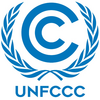
United Nations Framework Convention on Climate Change
🇩🇪 Germany
Claimed Profile
The Company Profile is claimed! Rest assured, that this is a real company with a real person behind it.
Some Numbers About United Nations Framework Convention on Climate Change
About (United Nations Framework Convention on Climate Change)
The United Nations Framework Convention on Climate Change (UNFCCC) is an international treaty that aims to prevent "dangerous human interference with the climate system" by stabilizing the levels of greenhouse gases in the atmosphere. The UNFCCC was adopted in 1992 and entered into force in 1994. It has 198 countries as its parties, who meet regularly to negotiate and implement measures to combat climate change. The UNFCCC recognizes that developed countries have contributed the most to the historical and current emissions of greenhouse gases, and therefore have the responsibility to take the lead in reducing them. The UNFCCC also provides financial and technological support to developing countries to help them adapt to the impacts of climate change and pursue low-carbon development. The UNFCCC is based on the principles of international cooperation, common but differentiated responsibilities, and respect for national sovereignty and development needs. The UNFCCC is the parent treaty of the Kyoto Protocol and the Paris Agreement, which set binding targets and commitments for greenhouse gas emissions reduction for some parties .
The UNFCCC has several bodies and mechanisms that facilitate its work, such as the Conference of the Parties (COP), which is the supreme decision-making body of the convention; the Subsidiary Body for Scientific and Technological Advice (SBSTA), which provides technical guidance on scientific and technological matters; the Subsidiary Body for Implementation (SBI), which assists in monitoring and reviewing the implementation of the convention and its protocols; the Secretariat, which supports the activities of the convention and its bodies; and the Global Environment Facility (GEF), which serves as the financial mechanism of the convention .
The UNFCCC has also established several funds, such as the Green Climate Fund (GCF), which mobilizes financial resources from developed countries to support climate action in developing countries; the Adaptation Fund (AF), which finances concrete adaptation projects and programmes in developing countries that are parties to the Kyoto Protocol; the Least Developed Countries Fund (LDCF), which supports urgent and immediate adaptation needs of least developed countries; and the Special Climate Change Fund (SCCF), which supports activities in adaptation, technology transfer, energy, transport, industry, forestry, waste management, and economic diversification in developing countries .
The UNFCCC also promotes various initiatives and partnerships, such as the Nairobi Work Programme (NWP), which enhances knowledge and understanding of impacts, vulnerability, and adaptation to climate change; the Technology Mechanism, which facilitates technology development and transfer for mitigation and adaptation; the Paris Committee on Capacity-building (PCCB), which addresses gaps and needs in capacity-building for developing countries; and the Action for Climate Empowerment (ACE), which fosters education, training, public awareness, public participation, public access to information, and international cooperation on climate change .
The UNFCCC is a vital instrument for global action on climate change. It provides a framework for cooperation among countries with different circumstances and capabilities. It also sets a common goal of limiting global warming to well below 2°C above pre-industrial levels, preferably 1.5°C, as agreed by parties in the Paris Agreement. The UNFCCC strives to achieve this goal by enhancing national actions on mitigation, adaptation, finance, technology, capacity-building, transparency, and global stocktake .